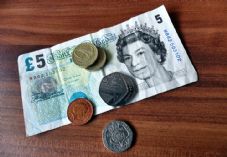UK DIY News
KPMG: Forecasts 2.6% GDP Decline In 2020; Uplift In H2 2021
The impact of the COVID-19 virus is expected to see the UK economy contract by 2.6% in 2020, according to KPMG UK’s latest quarterly Economic Outlook, but a protracted outbreak could result in a more severe impact than the downturn experienced in 2008-09. The economy is expected to recover by the second half of 2021 at the latest under both scenarios.
Yael Selfin, Chief Economist at KPMG UK, comments on the report, regarding COVID-19 brings UK economy to temporary halt.
- KPMG forecasts UK GDP decline of 2.6% for 2020, assuming the COVID-19 pandemic can be contained by the summer, with a sharp recovery in the first half of 2021 as uncertainties arounds the pandemic dissipate.
- A more enduring outbreak could prompt a fall of 5.4% this year.
- Consumer spending and business investment will be particularly hard hit due to COVID-19 related disruptions and uncertainty.
- KPMG forecasts flat growth in the second half of this year, but a sharp recovery in in the first half of 2021, with UK GDP growth of 1.7% in 2021.
KPMG’s main scenario assumes the public health measures put in place around the world stem the rise in the number of cases by the summer. In this case, it is expected that the economy remains flat in the second half of the year with a strong recovery in the first half of 2021, as uncertainties around the pandemic dispel. This would see UK GDP fall by 2.6% this year, then grow by 1.7% in 2021. However, if the pandemic persists until the second half of next year, GDP could contract by 5.4% this year and by another 1.4% in 2021.
With so much uncertainty about how COVID-19 will develop in the weeks and months ahead, KPMG’s latest forecasts are based on a range of scenarios. However, even in its main one, the effects of the pandemic on global economic growth, consumer spending and business investment in particular, will still be highly significant.
Yael Selfin, Chief Economist at KPMG UK, commented on the report: “The COVID-19 pandemic is first and foremost a human crisis but there will also be a very substantial negative impact on the global economy and the UK’s economic performance this year and potentially next, but the economy is expected to recover by the second half of 2021.
“Until we know how and when the COVID-19 outbreak will end, the scale of the negative economic impact will be difficult to quantify. However, it is now almost certain that the UK is slipping into its first significant downturn in over a decade.”
Table 1. KPMG’s March forecasts for the UK economy (main scenario)
| 2019 | 2020 | 2021 | |
GDP | 1.4 | -2.6 | 1.7 |
Consumer spending | 1.4 | -2.5 | 1.6 |
Investment | 0.4 | -11.2 | 5.2 |
Unemployment rate | 3.8 | 4.7 | 4.1 |
Inflation | 1.8 | 1.4 | 2.0 |
Base interest rate | 0.75 | 0.10 | 0.25 |
Source: ONS, KPMG forecasts. Average % change on previous calendar year except for unemployment rate, which is average annual rate. Investment represents Gross Fixed Capital Formation, inflation measure used is the CPI and unemployment measure is LFS. Interest rate represents level at the end of calendar year.
More action will be needed to shore up the UK economy
With the latest measures announced by the Chancellor on Friday, the disruption to economic activity in the first half of the year could see unemployment peak at a relatively low rate of around 5.6% in May. KPMG predicts this will then ease gradually to around 4.1% by Q1 next year, leaving the labour market relatively tight again. Protecting jobs and incomes in the short term will provide needed support to besieged households.
Businesses selling consumer goods and services face a dramatic fall-off in demand following the introduction of restrictions on social gatherings and quarantine measures. Importers and exporters will need to cope with the multiple challenges of supply chain disruption, workforce loss and workplace shutdown, all at the same time when the UK’s key trading partners are also heading into recession.
However, low inflation will leave the Bank of England some room for monetary expansion to combat both turbulence in markets and the economic downturn, but with interest rates at record low, more creative stimulus measures will need to be used.
Yael Selfin, Chief Economist at KPMG UK, concludes: “With the UK’s government charged with meeting an ambitious timetable for its post-Brexit trading relationship with the EU, the scope for further economic uncertainty this year was already high. However, the COVID-19 pandemic represents a far more dramatic short-term disruption to growth.
“The impact of the pandemic will be far reaching. It is likely COVID-19 will result in a massive expansion in government debt and this could threaten to dislodge the Government’s original vision to “level-up” the UK economy, long after the pandemic is past – leaving the Chancellor with a big challenge on his hands.”
Source : KPMG
Thank you for the excellent presentation that you gave at Woodbury Park on Thursday morning. It was very interesting and thought-provoking for our Retail members. The feedback has been excellent.











































